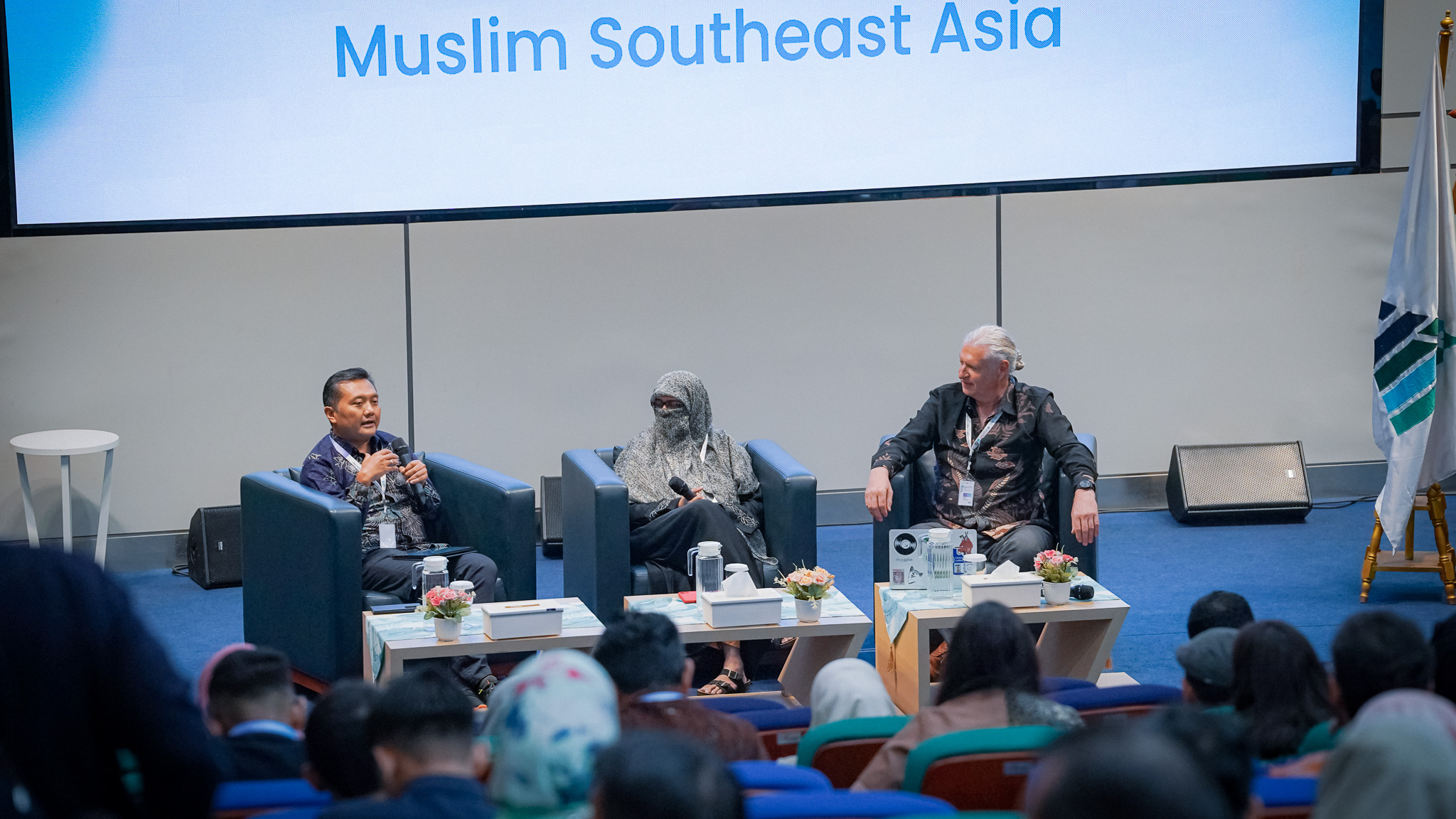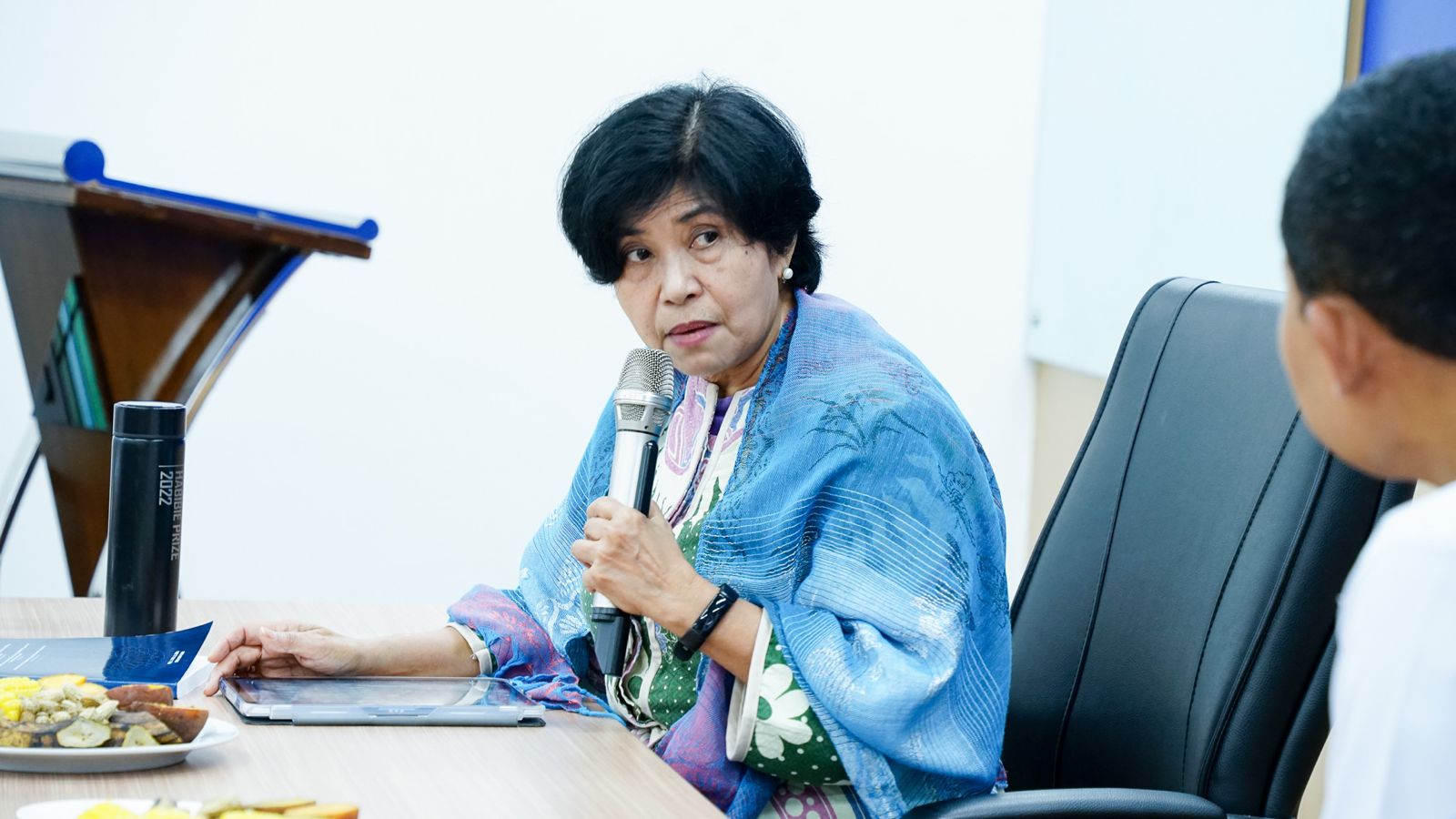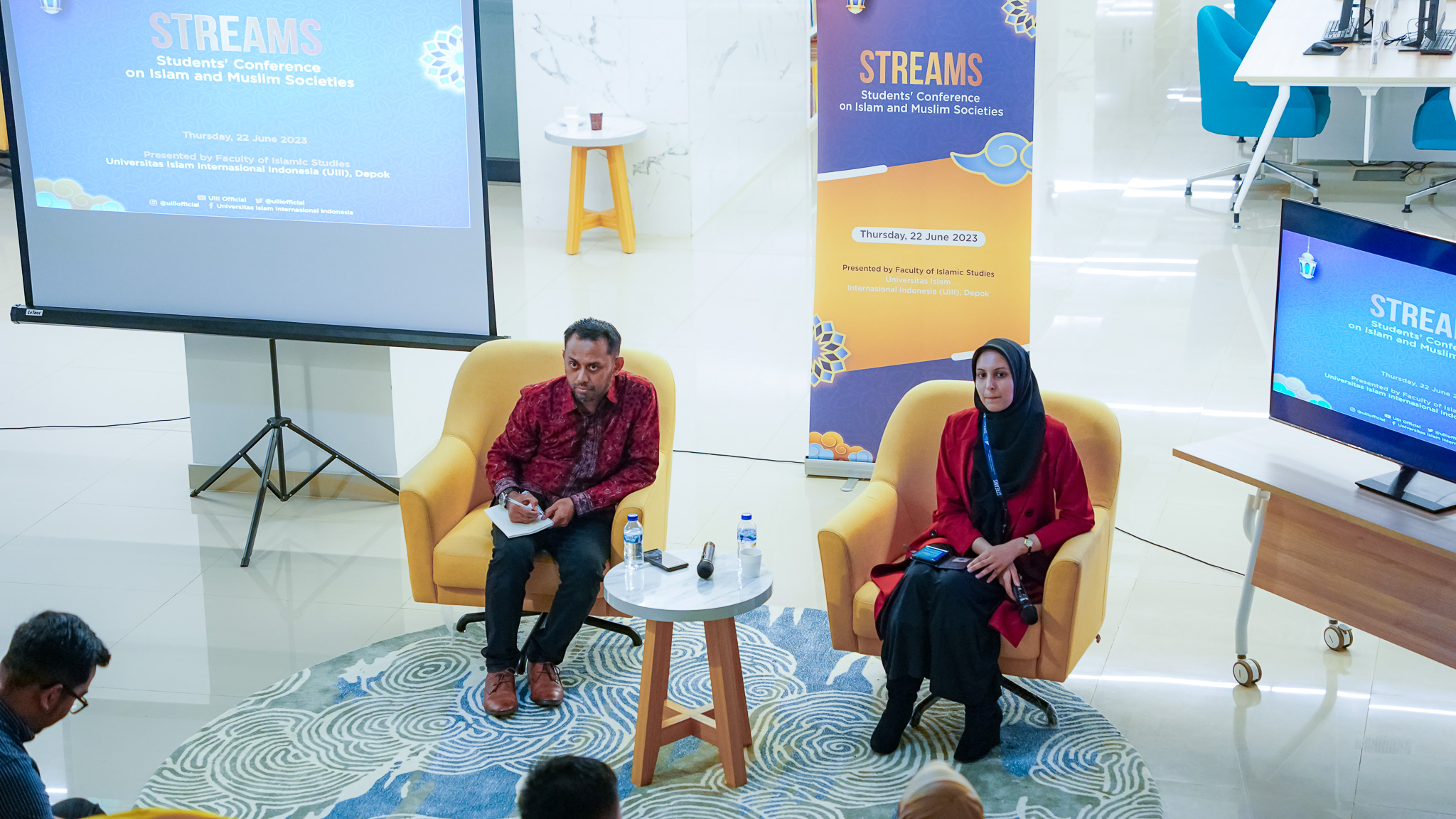Exploring Islamic Studies in Germany with UIII’s IGC Fellow
June 21, 2023Contributor: Kante Hamed | Editor: Supriyono
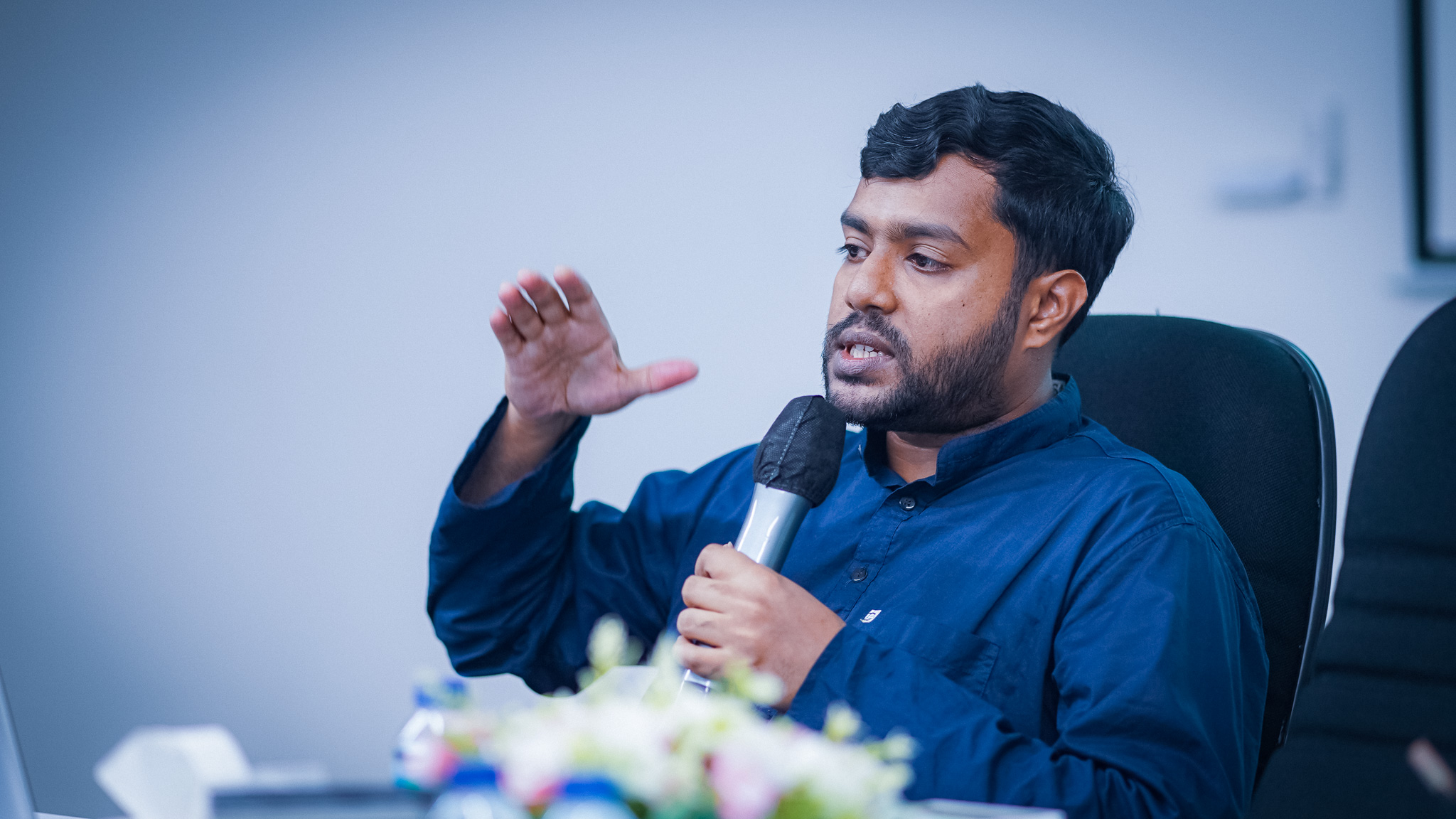
The Faculty of Islamic Studies at the Universitas Islam Internasional Indonesia (UIII) organized a public lecture on June 14, 2023, themed “The Undercurrents of Islamic Studies in Germany: History and Prospects” featuring Waseem Naser, an esteemed fellow affiliated with the UIII’s Center of Islam and Global Challenges (IGC).
Despite his current fellowship at UIII’s IGC Center, Mr. Naser is also a doctoral researcher at the Max Planck Institute for Social Anthropology, Germany, where he works towards PhD within the research group 'The Bureaucratization of Islam and its Socio-Legal Dimensions in Southeast Asia'.
The discussion began with an exploration of the remarkable collection of Islamic manuscripts preserved in renowned German libraries, such as the Bavarian State Library Munich, Prussian State Library Marburg, Niedersächsische Bibliothek Göttingen, and the Near and Middle-East Collection Tübingen.
During the lecture, Mr. Naser provided insights into the historical development of Islamic Studies in Germany. He specifically emphasized the significant contributions of prominent scholars such as Johann Jakob Reiske in Islamic Studies, Franz Bopp in Indology, and Max Muller in Religious Studies.
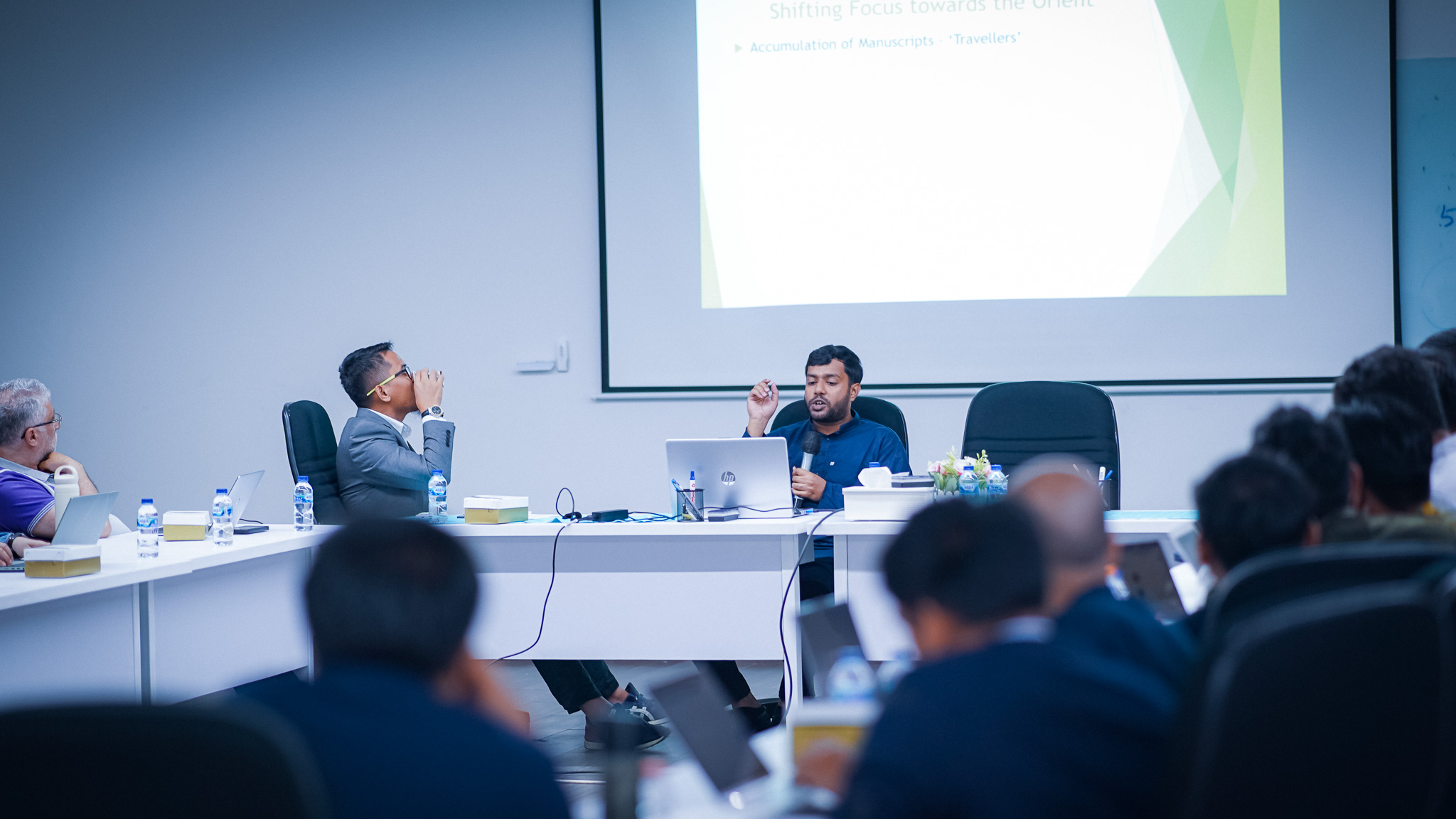
The event also examined the intersection of German colonial intervention in Africa and the subsequent rise in the popularity of Shafi' fiqh in present-day Tanzania. The participants explored the establishment of the Seminar fur Orientalische Sprachen in Berlin in 1887 and the notable work of Ignaz Goldziher. Moreover, the event shed light on the "constitutional guarantee" of religious education in Germany, particularly within schools, and the systematic teaching of Christian theology in universities.
A key highlight of the event was the discussion on the distinctive establishment of Islamic Theology as a separate field from Islamic Studies in German universities. In this regard, there were recommendations of the German Scientific Council in 2010, which include the subsequent government funding, the creation of four centers at six universities, the appointment of 21 professors, and the enrollment of 1,800 students in just three years. This initiative has played a vital role in promoting Islamic theological studies in Germany.
The event concludes with an interactive question-and-answer session, providing participants with an opportunity to delve deeper into the topics discussed. Notably, thought-provoking questions were raised, one of which involved comparing France's concepts of "Islam de France" or "black Islam" with Germany's approach to Islam in their colonies. Mr. Naser clarified that Germany primarily focuses on the adaptation of the Shafi madhab, highlighting the specific area of concentration within Germany's approach to Islam.
Overall, the lecture provided an intellectually stimulating platform for in-depth discussions and insights into the field. It exemplified UIII's dedication to fostering a comprehensive understanding of Islamic Studies within a global context while promoting academic excellence. Through the organization of such enlightening events, UIII continues to encourage knowledge exchange, intercultural dialogue, and the exploration of diverse perspectives among students and academics.
- Call for Papers 2025: FEB UIII Invites Researchers to Explore Muslim World Economy & Sustainability in OIC Countries
- Prof. Dr. Nasaruddin Umar: A Distinguished Profile in Religious Leadership
- Is Indonesia’s Middle Class Collapsing?
- Pedaling to Work, Dr. Lukman’s Message on ‘World Sustainable Transport Day’
- Welcoming the Pilgrim of Hope: Indonesian Muslim Leaders Embrace Pope Francis
- Sheikh Muhammad adh-Dhuwaini: A Recognized Authority in Sharia and Law
- Qurban and Grassroots Innovations Across Indonesia
- Indonesia's Green Qurban Movement
- UIII Productivity Ratio 2023
- Unsung Heroes in Global Trade: Celebrating International Customs Day 2024
